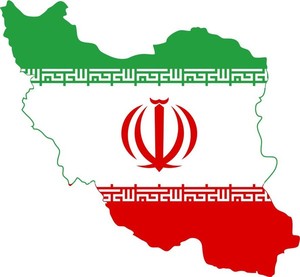In May 2015, Iran’s National Regulatory Authority, the Food and Drug Organization (FDO), approved its first rituximab biogeneric (Zytux). The medicine received its marketing authorization based on the previously published national guideline for marketing of biogenerics in Iran [1].
Iran approves its first rituximab biogeneric
Biosimilars/News
|
Posted 15/05/2015
 0
Post your comment
0
Post your comment

The marketing authorization is based mainly on the development of the biogeneric by comparability. The comparability data was evaluated to demonstrate the similarity between Zytux and the comparator originator drug MabThera (rituximab).
Zytux is a genetically engineered human–mouse chimeric monoclonal antibody produced by Chinese Hamster Ovary (CHO) cells in suspension and purified by chromatography. It is a fusion of the light and heavy chain variable domains of a murine monoclonal anti-CD20 antibody and human kappa light-chain and gamma 1 heavy-chain constant regions. Zytux has been approved for the treatment of cancerous lymphocytic cells and is supplied as a sterile, clear, colourless, preservative-free liquid concentrate for intravenous infusion. It is provided in two dosages, 100 mg and 500 mg vials.
Although there are already other brand-name versions of rituximab available in Iran’s market, due to its substantial lower price, it is expected that Zytux will gain a substantial share of the market. The prices of locally manufactured biologicals in Iran are between 27–72% lower than their corresponding imported originator brand-name biologicals [2].
Reported by Professor Majid Cheraghali, Member of International Editorial Advisory Board, GaBI Journal.
Note:
According to Professor Cheraghali, the term ‘biogeneric’ is the official term used by Iran’s FDO both in Farsi and English.
Related article
Iranian guidelines for ‘biogenerics’
Access to alternative biopharmaceuticals in low- and middle-income countries
References
1. GaBI Online - Generics and Biosimilars Initiative. Development of Iranian guidelines for ‘biogenerics’ [www.gabionline.net]. Mol, Belgium: Pro Pharma Communications International; [cited 2014 May 15]. Available from: www.gabionline.net/Guidelines/Development-of-Iranian-guidelines-for-biogenerics
2. Cheraghali AM. Current status of biopharmaceuticals in Iran’s pharmaceutical market. Generics and Biosimilars Initiative Journal (GaBI Journal). 2013;2(1):26-9. doi:10.5639/gabij.2013.0201.008
Permission granted to reproduce for personal and non-commercial use only. All other reproduction, copy or reprinting of all or part of any ‘Content’ found on this website is strictly prohibited without the prior consent of the publisher. Contact the publisher to obtain permission before redistributing.
Copyright – Unless otherwise stated all contents of this website are © 2015 Pro Pharma Communications International. All Rights Reserved.
Source: FDO
Research
Reaching ESG goals in pharmaceutical development
What is the future for the US biosimilar interchangeability designation
General
Samsung Bioepis wins Pyzchiva case; Regeneron patent rulings threaten foreign biosimilars
Chinese biosimilars go global: growth, partnerships, and challenges
Most viewed articles
The best selling biotechnology drugs of 2008: the next biosimilars targets
Global biosimilars guideline development – EGA’s perspective
Related content
FDA approves Poherdy (first interchangeable pertuzumab) and Armlupeg (pegfilgrastim) biosimilars
EMA recommends approval for insulin glargine biosimilar Ondibta and denosumab biosimilar Osqay
FDA approves denosumab biosimilars Osvyrti and Jubereq, Boncresa and Oziltus
FDA approves aflibercept biosimilar Eydenzelt and label expansion for adalimumab biosimilar Yuflyma
FDA approves Poherdy (first interchangeable pertuzumab) and Armlupeg (pegfilgrastim) biosimilars

Biosimilars/News Posted 27/01/2026
EMA recommends approval for insulin glargine biosimilar Ondibta and denosumab biosimilar Osqay

Biosimilars/News Posted 16/01/2026
FDA approves denosumab biosimilars Osvyrti and Jubereq, Boncresa and Oziltus

Biosimilars/News Posted 07/01/2026
FDA approves aflibercept biosimilar Eydenzelt and label expansion for adalimumab biosimilar Yuflyma

Biosimilars/News Posted 05/12/2025
The best selling biotechnology drugs of 2008: the next biosimilars targets






Post your comment